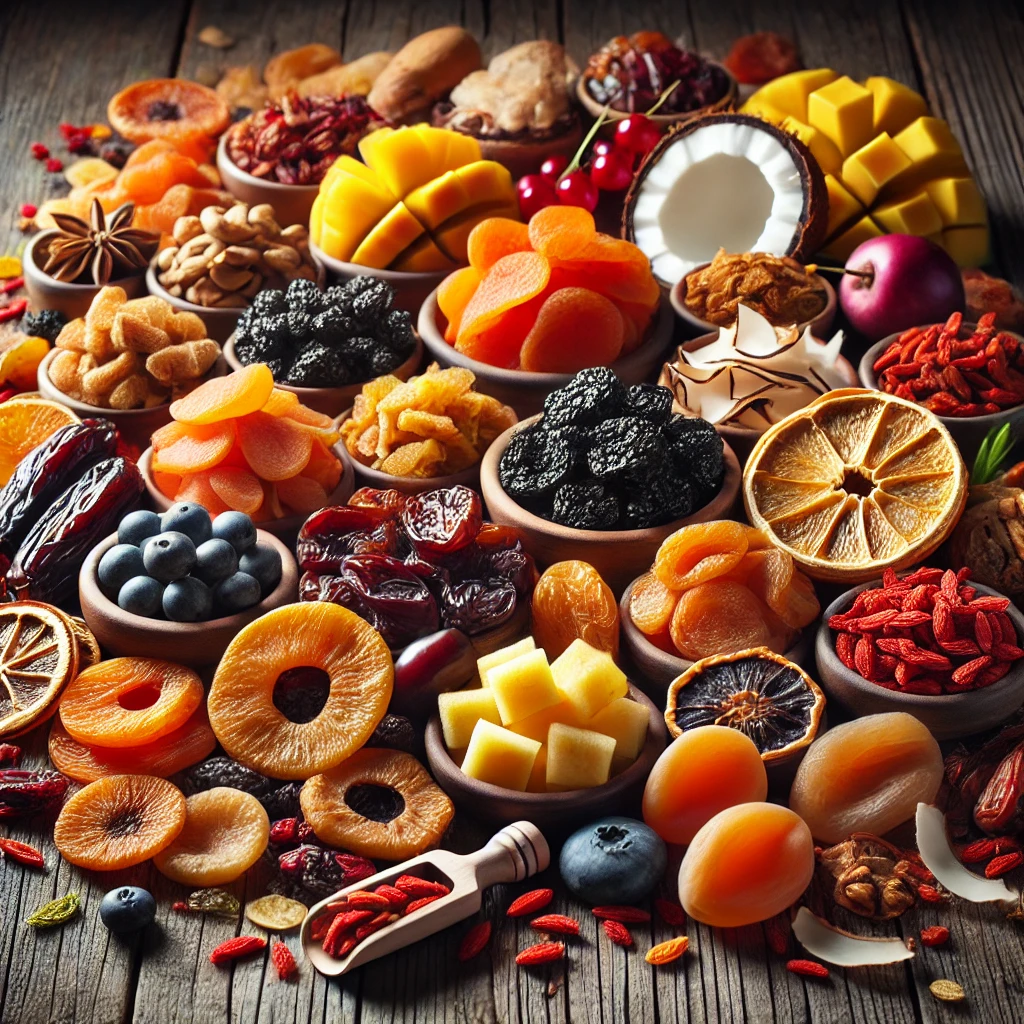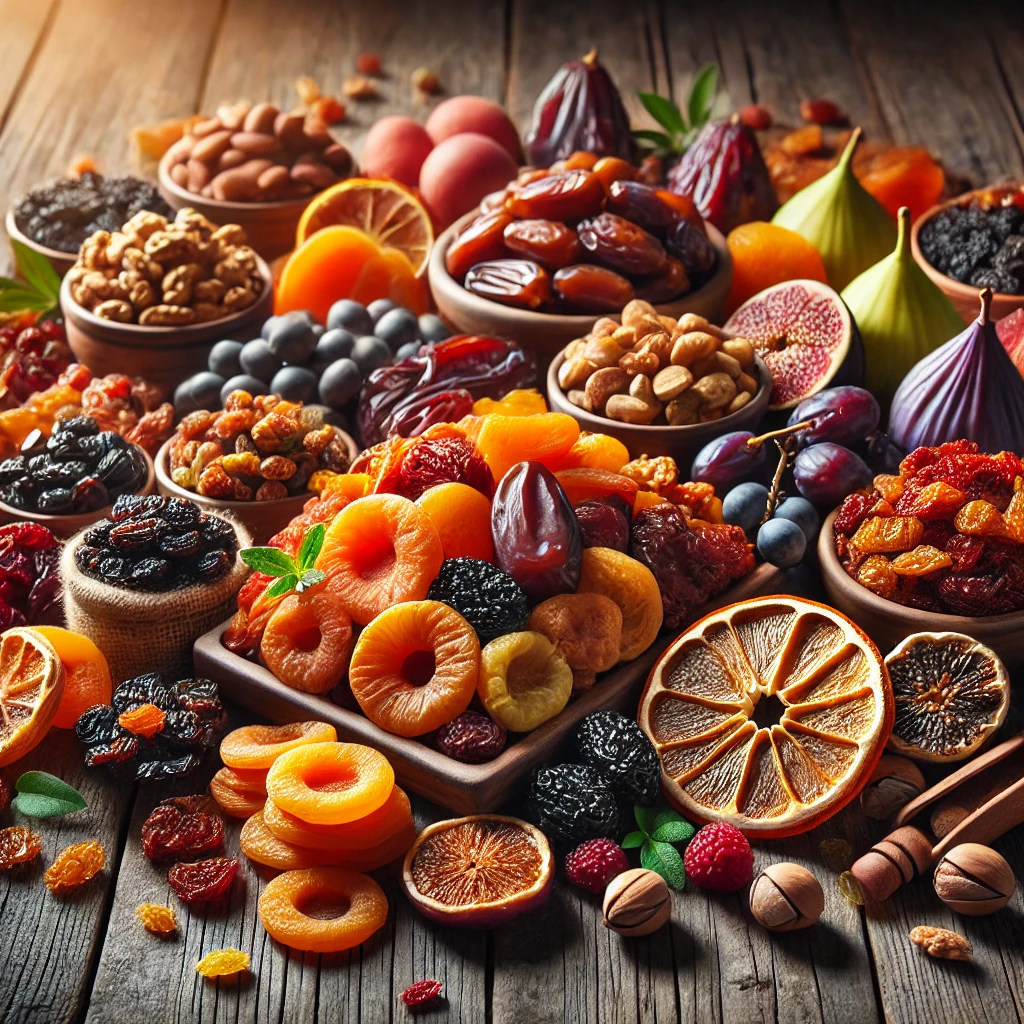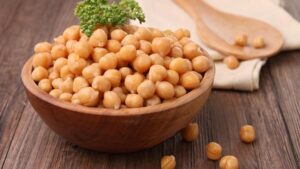The Benefits of Dried Fruits

Dried fruits offer numerous health and culinary benefits. Dried fruits are fruits that have had most of their water content removed through drying methods such as sun-drying, air-drying, or using specialized dehydrators. This process concentrates the fruit’s natural sugars, flavors, and nutrients, making dried fruits a popular snack and ingredient in various dishes.
1. Nutrient-Dense
- Vitamins and Minerals: Dried fruits retain most of the nutrients found in fresh fruits, including potassium, magnesium, calcium, iron, and vitamins like A and C (though vitamin C levels may decrease during drying).
- Antioxidants: Many dried fruits, such as apricots, raisins, and dates, are rich in antioxidants, particularly polyphenols, which support heart health and reduce inflammation.
2. Long Shelf Life
- Dried fruits are less perishable than fresh fruits, making them a convenient option for long-term storage or travel.
3. Energy Boost
- Due to their concentrated natural sugars, dried fruits provide a quick and efficient energy source, ideal for athletes or as a pre-workout snack.
4. High in Fiber
- Dried fruits like figs, prunes, and dates are excellent sources of dietary fiber, which supports digestive health, prevents constipation, and promotes a feeling of fullness.
5. Versatility in Cooking
- They can be used in various dishes, from breakfast cereals and smoothies to salads, baked goods, and savory recipes.
6. Natural Sweetener
- Dried fruits like dates and raisins can act as natural sweeteners in recipes, reducing the need for refined sugar.
7. Convenient Snack
- Lightweight, portable, and ready-to-eat, dried fruits are an easy snack option for busy lifestyles.
8. Rich in Iron
- Dried fruits like apricots and raisins are good sources of iron, which is essential for red blood cell production and preventing anemia.
9. Heart Health
- The potassium in dried fruits helps regulate blood pressure, while their antioxidants may lower LDL cholesterol levels.
10. Bone Health
- Dried fruits such as figs contain calcium and magnesium, which support strong bones and teeth.
11. Immune Support
- The nutrients and antioxidants in dried fruits contribute to a stronger immune system.
12. Low Waste
- Drying fruit reduces waste by preserving fruits that might otherwise spoil.
Tips for Choosing and Using Dried Fruits
- Opt for Unsweetened Varieties: Many dried fruits are sweetened with added sugars, which can negate some of their health benefits.
- Watch Portion Sizes: Because they’re calorie-dense, it’s easy to overconsume dried fruits.
- Hydrate Them: Soaking dried fruits before use can restore their texture and make them easier to digest.
Dried fruits are a healthy and versatile addition to any diet when consumed in moderation!Here are some popular examples of dried fruits:
Traditional Dried Fruits
These are fruits that are typically dried without additional processing:
Raisins (dried grapes)
Apricots
Prunes (dried plums)
Figs
Dates
Tropical Dried Fruits
These are often sourced from tropical regions:
Mangoes
Pineapple
Bananas (often in chip form)
Papaya
Coconut (often as flakes or chips)
Berries

Berries are dried for their concentrated flavor and nutrients:
Cranberries (often sweetened due to tartness)
Blueberries
Strawberries
Goji Berries
Cherries
Specialty or Exotic Options
Unique and less common dried fruits:
Mulberries
Persimmons
Kiwi
Pomegranate Seeds (Arils)
Each dried fruit offers unique flavors and health benefits, making them a versatile option for snacking, cooking, and baking.
Culinary Uses
- Snacks: Eaten on their own as a healthy snack.
- Breakfasts: Added to cereals, yogurt, or oatmeal.
- Baking and Cooking: Used in cakes, breads, and savory dishes.
- Trail Mixes: Combined with nuts and seeds for a balanced snack.






